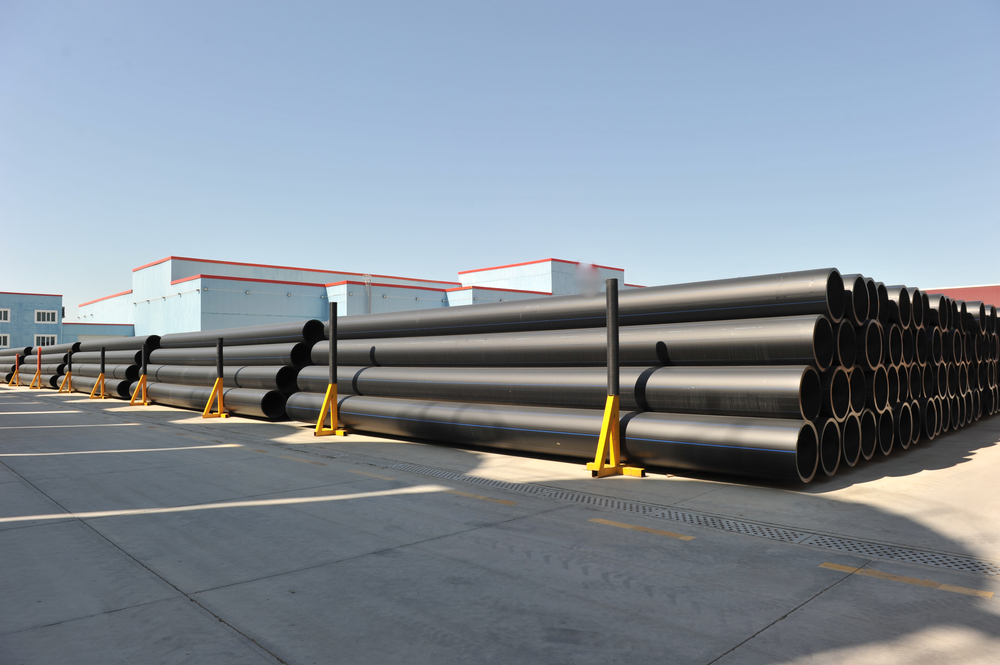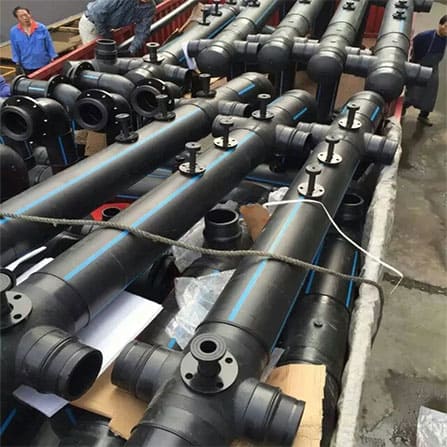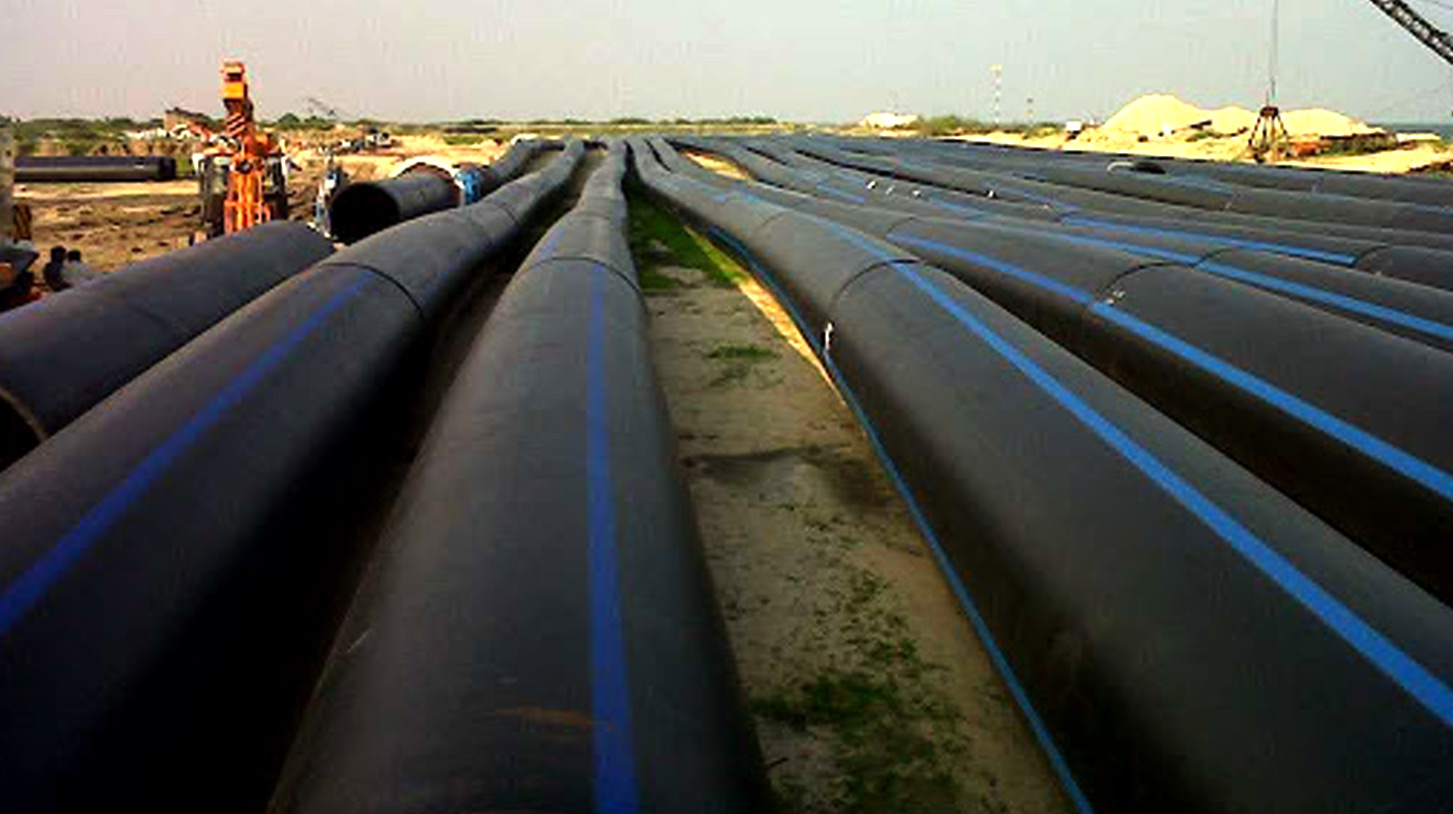Pipeline Manufacturer vs. alternatives: what sets them apart
Exploring the Leading Pipeline Manufacturers: Top Quality, Reliability, and Development
The pipeline manufacturing market stands at the junction of reliability, development, and quality, driven by leading companies such as Tenaris and Vallourec. These suppliers are not only dedicated to generating high-performance materials however are likewise introducing lasting techniques that deal with modern-day ecological issues (Pipeline Manufacturer). As we check out the requirements that define excellence in pipeline options, it ends up being obvious that the landscape is rapidly advancing. What specific innovations are emerging, and exactly how are these innovations forming the future of pipeline framework? The responses might redefine market criteria in methods that are not yet totally comprehended
Leading Manufacturers Overview
In the domain of pipeline manufacturing, a number of essential gamers emerge as leaders, each contributing substantially to the sector's landscape. Business such as Tenaris, Vallourec, and JFE Steel have established themselves as frontrunners by consistently supplying premium products that fulfill stringent sector requirements. Tenaris, renowned for its cutting-edge options, specializes in seamless and bonded pipes, providing primarily to the oil and gas sector. Vallourec, a French multinational, concentrates on the production of costs tubular services, highlighting sustainability and advanced innovation in its manufacturing procedures.
JFE Steel, a significant Japanese manufacturer, is recognized for its comprehensive range of steel pipes, particularly those utilized in energy and facilities projects. Their commitment to r & d has actually enabled them to generate high-performance materials that withstand rough environmental problems. In addition, business like united state Steel and National Oilwell Varco have expanded their market existence by diversifying their product offerings and boosting operational performances.
These leading suppliers not only control the market yet also drive innovation within the market, establishing benchmarks for quality and dependability that other players strive to attain. Their payments are vital for meeting the boosting demand for effective and resilient pipeline options worldwide.
Requirements for Top Quality Evaluation
Quality evaluation in pipeline manufacturing rests on 2 crucial standards: material longevity standards and producing process performance. Making certain that products meet extensive sturdiness criteria is necessary for the durability and integrity of pipes. In addition, maximizing the manufacturing process can enhance productivity while maintaining excellent quality, inevitably affecting total performance and safety.
Material Longevity Standards
Assuring the longevity and dependability of pipeline products is essential for preserving framework stability and functional performance. Material sturdiness requirements play an essential role in assessing the quality of pipes, determining the efficiency and life expectancy of the products used in construction. Manufacturers have to abide by a series of strenuous requirements, consisting of those established by organizations such as ASTM International and the American Petroleum Institute (API)
These standards evaluate numerous variables, consisting of deterioration resistance, tensile stamina, and tiredness performance. Pipelines used in corrosive atmospheres need materials that can stand up to chemical degradation, while those subjected to high-pressure conditions must show remarkable tensile toughness.
Furthermore, variables such as temperature level variations and ecological conditions must be considered, as these can substantially influence product habits in time. Manufacturers frequently utilize sophisticated testing methods, consisting of sped up aging tests, to replicate long-lasting wear and warranty that products meet or go beyond industry standards.
Manufacturing Process Efficiency
Manufacturers' ability to optimize manufacturing process efficiency is essential for generating top notch pipes that meet rigorous industry standards. Performance in manufacturing directly affects cost management, production timelines, and total item integrity. To achieve this, leading pipeline makers implement sophisticated techniques such as lean manufacturing, automation, and real-time information analytics.
Lean manufacturing principles are crucial in reducing waste and taking full advantage of resource use. By simplifying procedures and removing redundancies, producers can improve performance while guaranteeing constant high quality. Automation innovations, including robotics and computer system mathematical control (CNC) machines, play a crucial role in improving accuracy and reducing human mistake, thus elevating the reliability of the final item.
Additionally, using real-time information analytics permits suppliers to check production procedures continuously, enabling them to determine bottlenecks and make timely modifications. This aggressive approach not only enhances effectiveness yet also supports quality assurance protocols by making sure compliance with regulatory requirements.
Integrity in Pipeline Solutions
Dependability in pipeline remedies is vital, as it straight influences the safety and security and effectiveness of liquid transportation systems. Trick variables include the sturdiness of materials used, adherence to strenuous screening and qualification criteria, and the unification of innovative material options that improve efficiency. Comprehending these components is necessary for manufacturers intending to deliver dependable pipeline infrastructure.
Significance of Resilience
Achieving toughness in pipeline options is essential, as it straight affects the long-lasting performance and safety of framework. Sturdy pipes are important for lessening maintenance expenses and minimizing the chance of devastating failures. This dependability is particularly essential in sectors such as oil and gas, supply of water, and wastewater monitoring, where the consequences of pipeline failure can be severe, both financially and eco.
The products and producing processes used by pipeline makers play a substantial function in establishing the longevity of the final item. Utilizing top quality resources, advanced modern technologies, and innovative layout principles guarantees that pipelines can stand up to numerous stress factors, including pressure variations, temperature variants, and destructive environments.
In addition, the sturdiness of pipelines is closely connected to their ability to resist exterior elements such as dirt movement, seismic activity, and chemical direct exposures. Efficient corrosion security techniques, such as finishes and cathodic defense, additionally improve the longevity of pipes, guarding them against damage in time.
Investing in resilient pipeline solutions inevitably equates to raised functional performance, decreased downtime, and enhanced safety and security, attesting the crucial relevance of sturdiness in contemporary pipeline manufacturing.
Examining and Accreditation Criteria
In the domain of pipeline solutions, strenuous screening and qualification standards are vital to assure the integrity and safety and security of framework. These criteria act as standards for examining the performance and longevity of pipeline products and systems, validating they meet particular regulatory and market requirements.
Examining procedures typically incorporate various methodologies, including pressure testing, hydrostatic examinations, and non-destructive screening strategies. These analyses are necessary for recognizing prospective weak points or problems in the materials prior to they are deployed in real-world applications. Additionally, certification by acknowledged organizations guarantees that suppliers abide by established standards, which cultivates trust fund among stakeholders, consisting of designers, professionals, and end-users.
Many prominent pipeline suppliers participate in constant monitoring and enhancement of their testing procedures to adapt to developing sector requirements and technical innovations. Compliance with requirements such as ASTM, ASME, and ISO not just improves item dependability however additionally decreases the danger of environmental events related to pipeline failures.
Ingenious Product Solutions
The growth of cutting-edge material options has transformed the landscape of pipeline manufacturing, improving both efficiency and longevity. Advanced products such as high-density polyethylene (HDPE), cross-linked polyethylene (PEX), and composite products have actually arised as game-changers, offering exceptional resistance to deterioration, temperature variations, and stress variants. These products not just expand the life-span of pipes however likewise lower upkeep prices, making certain reliable long-term performance.
In addition, producers are significantly adopting wise products that integrate sensors for real-time surveillance. This modern technology permits aggressive upkeep, considerably improving integrity by detecting leakages or architectural weak points prior to they escalate into essential failures. The assimilation of nanotechnology has actually also brought about the advancement of finishings that enhance the longevity of pipes versus abrasion and chemical exposure.
Sustainability is one more key emphasis, with producers discovering bio-based compounds and recyclable materials that reduce ecological effect. As regulatory requirements continue to advance, the focus on innovative material options ends up being extremely important in conference rigorous safety and ecological demands. Ultimately, these improvements not only improve the integrity of pipeline systems yet also add to the overall effectiveness and sustainability of power transport facilities.
Advancements in Pipeline Innovation
Developments in pipeline technology are reinventing the market by enhancing efficiency, safety, and ecological sustainability. Current developments focus on wise pipeline systems that utilize sensors and IoT modern technology to keep track of problems in actual time, making it possible for positive maintenance and lowering the threat of failings. These systems can find leaks, stress modifications, and various other abnormalities, enabling quick action and reducing environmental influence.
Furthermore, the growth of innovative products, such as corrosion-resistant and composite alloys, substantially prolongs the life-span and reliability of pipelines. Pipeline Manufacturer (American Plastics LLC HDPE Pipeline Manufacturer). These materials minimize maintenance expenses and enhance performance in severe atmospheres, making them optimal for gas, oil, and water transportation
In addition, automation and robotics are playing an essential duty in pipeline building and construction and assessment. Drones and robot tools assist in surveys and assessments of hard-to-reach locations, making certain detailed evaluations without endangering safety and security.
Innovative designs, such as modular pipeline systems, allow for better adaptability in installment and modification, catering to the dynamic needs of the energy field. Together, these technical improvements not only enhance functional performance however also add to an extra resilient and lasting pipeline infrastructure, leading the way for a greener future.
Situation Studies of Success
Throughout various markets, effective applications of advanced pipeline technologies demonstrate substantial enhancements in operational performance and security. One noteworthy case is the implementation of smart pipeline surveillance systems in the oil and gas market, where real-time data analytics have actually decreased leakage detection times by over 50%. This not only decreases environmental dangers but additionally enhances the general integrity of pipeline framework.

In addition, a significant manufacturer applied robot assessment innovations in its pipeline maintenance procedures, causing a 40% enhancement in assessment effectiveness. This method has streamlined upkeep routines and significantly minimized downtime.
These study highlight exactly how prominent pipeline producers are leveraging innovative technologies to cultivate reliability and functional quality, eventually setting brand-new criteria for the market. As these successes proceed to unfold, they lead the way for further innovations in pipeline manufacturing and administration.

Ecological Sustainability Practices
Often, pipeline suppliers are prioritizing ecological sustainability techniques to mitigate their environmental impact and boost the longevity of their products. This dedication is mirrored in numerous initiatives intended at reducing waste, conserving power, and using sustainable products throughout the manufacturing procedure.

Several manufacturers are taking on innovative technologies that lessen exhausts and power consumption. As an example, the integration of automated systems and energy-efficient machinery assists simplify manufacturing while decreasing reliance on fossil fuels. In addition, firms are significantly transforming to environmentally friendly materials, such as recycled metals and bioplastics, which not just lower the ecological effect but additionally promote a circular economic situation.
Furthermore, pipeline producers are applying rigorous lifecycle analyses to review the ecological ramifications of their products from beginning to disposal. This method allows them to determine opportunities for renovation and foster liable sourcing and waste monitoring practices.
Cooperation with environmental organizations further enhances these efforts, as producers look for to align their procedures with international sustainability objectives. Ultimately, these ecological sustainability practices not just add to a much healthier earth yet likewise setting producers as liable leaders in the market, interesting ecologically aware stakeholders and customers alike.
Future Fads in Pipeline Manufacturing
As the demand for more sustainable and reliable infrastructure expands, pipeline manufacturing is poised for significant advancements that will certainly reshape the market. Trick trends prepared for in the coming years consist of the combination of innovative materials, such as corrosion-resistant and composite alloys, which enhance longevity while reducing ecological influence. Manufacturers are likewise anticipated to adopt cutting-edge production methods, like additive manufacturing and automation, to streamline processes, lower waste, and lower prices.
In addition, the rise of wise pipeline modern technologies, integrating sensing units and IoT tools, will allow real-time monitoring and predictive maintenance, therefore enhancing safety and security and operational efficiency. This electronic makeover will certainly not only maximize source management yet additionally promote compliance with stringent environmental regulations.
Sustainability will certainly continue to be a main emphasis, driving makers to buy environment-friendly methods, including energy-efficient production methods and reusing campaigns. As the international focus on environment modification increases, pipeline makers will need to adjust by creating options that satisfy both economic and environmental demands.
Frequently Asked Inquiries

What Industries Largely Use Pipeline Products From These Manufacturers?
Pipeline products are mostly used in markets such as oil and gas, wastewater and water administration, chemical processing, construction, and mining. These sectors rely upon reliable, durable, and risk-free transport of materials and fluids.
Just How Do Manufacturers Ensure Compliance With International Pipeline Criteria?
Manufacturers ensure conformity with global pipeline standards by carrying out rigorous high quality control procedures, performing regular evaluations, sticking to recognized governing structures, and spending in employee training to promote awareness and understanding of security and top quality needs.
What Is the Ordinary Lifespan of Pipelines From Leading Manufacturers?
The average life-span of pipelines from leading producers commonly varies from 30 to 100 years, depending on material, ecological conditions, and maintenance methods. HDPE Pipe Supplies Midland TX. Routine examinations and adherence to sector criteria markedly influence long life and efficiency
Are There Certifications Particular to Pipeline Manufacturing Quality?
Yes, numerous qualifications exist for pipeline making high quality, including ISO 9001 for quality monitoring systems and API criteria details to pipes. These certifications guarantee adherence to strenuous security, performance, and ecological criteria within the market.
How Do Manufacturers Manage Pipeline Maintenance and Repair Works?
Manufacturers normally carry out a proactive upkeep technique that includes normal evaluations, keeping track of systems for very early detection of issues, and an organized repair protocol. This technique guarantees pipeline honesty, lessens downtime, and enhances general operational effectiveness.
Quality analysis in pipeline manufacturing pivots on two essential requirements: material durability standards and manufacturing process effectiveness - Pipeline Manufacturer. Material longevity criteria play a crucial duty in reviewing the top quality of pipelines, dictating the efficiency and life expectancy of the products made use of in building. The products and producing procedures employed by pipeline makers play a significant role in figuring out the durability of the final product. The ordinary lifespan of pipelines from leading producers usually varies from 30 to 100 years, depending on product, ecological conditions, and maintenance methods. Yes, various accreditations exist for pipeline making quality, including ISO 9001 for high quality administration systems and API criteria details to pipes